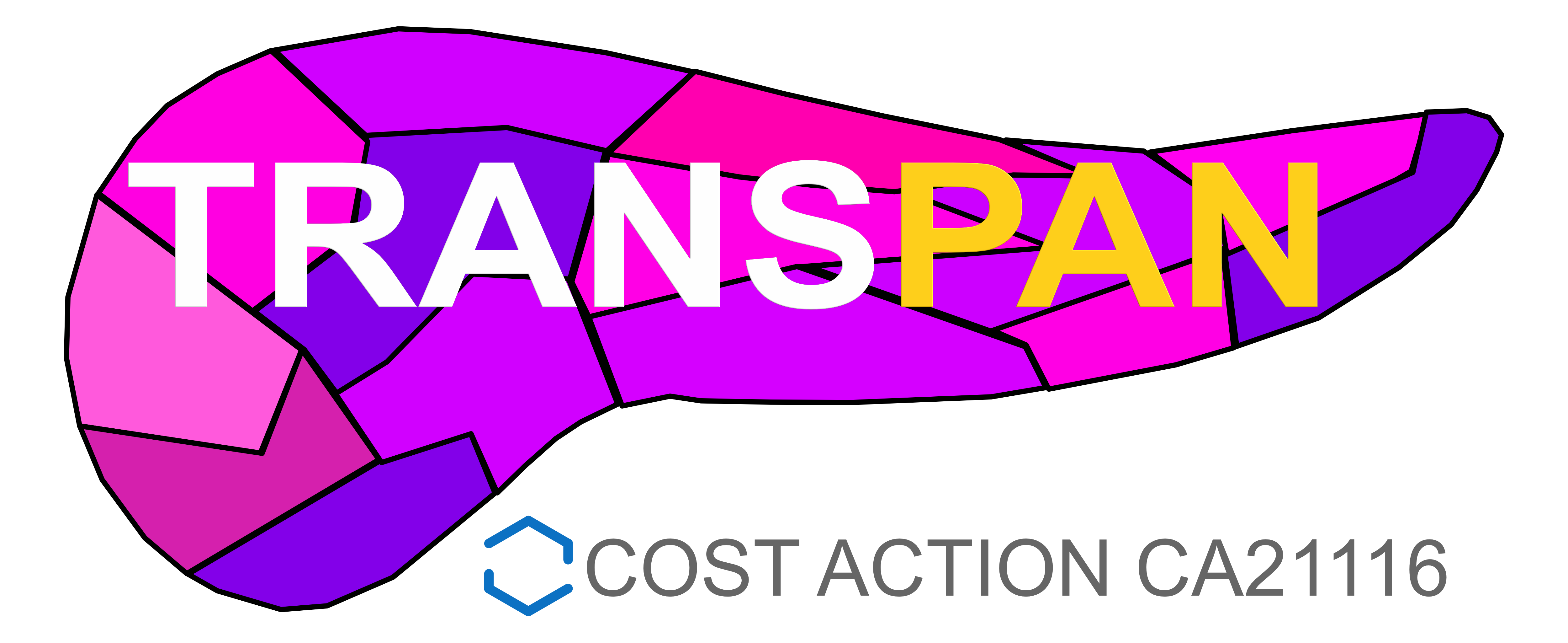Publications
A list of publications related with our COST Action

This is a collection of Publications related to our COST Action
The PANcreatic Disease ReseArch (PANDoRA) consortium turns 10! A summary of their main findings can be found in this anniversary paper
The PANcreatic Disease ReseArch (PANDoRA) consortium turns 10! A summary of their main findings can be found in this anniversary paper -> https://doi.org/10.1016/j.critrevonc.2023.104020
Pancreatic disease research (PANDoRA) is dedicated to the identification of pancreatic cancer risk loci and is the largest such consortium in Europe. PANDoRA is spread across 12 European countries, Brazil and Japan, bringing together 29 basic and clinical research groups. In the last ten years, PANDoRA has contributed to the discovery of 25 susceptibility loci, a feat that will be instrumental in stratifying the population by risk and optimizing preventive strategies.
Fibroblasts in pancreatic cancer: molecular and clinical perspectives
Rebelo R, Xavier CPR, Giovannetti E, Vasconcelos MH.
Trends Mol Med. 2023 Jun;29(6):439-453. doi: 10.1016/j.molmed.2023.03.002. Epub 2023 Apr 24.
PMID: 37100646
Exploring the Neandertal legacy of pancreatic ductal adenocarcinoma risk in Eurasians
Piccardi M, Gentiluomo M, Bertoncini S, Pezzilli R, Erőss B, Bunduc S, Uzunoglu FG, Talar-Wojnarowska R, Vanagas T, Sperti C, Oliverius M, Aoki MN, Ermini S, Hussein T, Boggi U, Jamroziak K, Maiello E, Morelli L, Vodickova L, Di Franco G, Landi S, Szentesi A, Lovecek M, Puzzono M, Tavano F, van Laarhoven HWM, Zerbi A, Mohelnikova-Duchonova B, Stocker H, Costello E, Capurso G, Ginocchi L, Lawlor RT, Vanella G, Bazzocchi F, Izbicki JR, Latiano A, Bueno-de-Mesquita B, Ponz de Leon Pisani R, Schöttker B, Soucek P, Hegyi P, Gazouli M, Hackert T, Kupcinskas J, Poskiene L, Tacelli M, Roth S, Carrara S, Perri F, Hlavac V, Theodoropoulos GE, Busch OR, Mambrini A, van Eijck CHJ, Arcidiacono P, Scarpa A, Pasquali C, Basso D, Lucchesi M, Milanetto AC, Neoptolemos JP, Cavestro GM, Janciauskas D, Chen X, Chammas R, Goetz M, Brenner H, Archibugi L, Dannemann M, Canzian F, Tofanelli S, Campa D.
Biol Res. 2023 Aug 13;56(1):46. doi: 10.1186/s40659-023-00457-y.
PMID: 37574541
Nanomedicine and epigenetics: New alliances to increase the odds in pancreatic cancer survival
Urbanova M, Cihova M, Buocikova V, Slopovsky J, Dubovan P, Pindak D, Tomas M, García-Bermejo L, Rodríguez-Garrote M, Earl J, Kohl Y, Kataki A, Dusinska M, Sainz B Jr, Smolkova B, Gabelova A.
Biomed Pharmacother. 2023 Sep;165:115179. doi: 10.1016/j.biopha.2023.115179. Epub 2023 Jul 21.
PMID: 37481927
Analysis of exposome and genetic variability suggests stress as a major contributor for development of pancreatic ductal adenocarcinoma.
Peduzzi G, Felici A, Pellungrini R, Giorgolo F, Farinella R, Gentiluomo M, Spinelli A, Capurso G, Monreale A, Canzian F, Calderisi M, Campa D.
Dig Liver Dis. 2023 Nov 18:S1590-8658(23)01004-6. doi: 10.1016/j.dld.2023.10.015. Online ahead of print.
PMID: 37985251
Thinking small to win big? A critical review on the potential application of extracellular vesicles for biomarker discovery and new therapeutic approaches in pancreatic cancer
Vahabi M, Comandatore A, Centra C, Blandino G, Morelli L, Giovannetti E.
Semin Cancer Biol. 2023 Dec;97:50-67. doi: 10.1016/j.semcancer.2023.11.003. Epub 2023 Nov 11.
PMID: 37956937
Polymorphisms in transcription factor binding sites and enhancer regions and pancreatic ductal adenocarcinoma risk
Ünal P, Lu Y, Bueno-de-Mesquita B, van Eijck CHJ, Talar-Wojnarowska R, Szentesi A, Gazouli M, Kreivenaite E, Tavano F, Małecka-Wojciesko E, Erőss B, Oliverius M, Bunduc S, Nóbrega Aoki M, Vodickova L, Boggi U, Giaccherini M, Kondrackiene J, Chammas R, Palmieri O, Theodoropoulos GE, Bijlsma MF, Basso D, Mohelnikova-Duchonova B, Soucek P, Izbicki JR, Kiudelis V, Vanella G, Arcidiacono PG, Włodarczyk B, Hackert T, Schöttker B, Uzunoglu FG, Bambi F, Goetz M, Hlavac V, Brenner H, Perri F, Carrara S, Landi S, Hegyi P, Dijk F, Maiello E, Capretti G, Testoni SGG, Petrone MC, Stocker H, Ermini S, Archibugi L, Gentiluomo M, Cavestro GM, Pezzilli R, Di Franco G, Milanetto AC, Sperti C, Neoptolemos JP, Morelli L, Vokacova K, Pasquali C, Lawlor RT, Bazzocchi F, Kupcinskas J, Capurso G, Campa D, Canzian F.
Hum Genomics. 2024 Feb 2;18(1):12. doi: 10.1186/s40246-024-00576-x.
PMID: 38308339
Treatment resistance in pancreatic and biliary tract cancer: molecular and clinical pharmacology perspectives
Toledo B, Deiana C, Scianò F, Brandi G, Marchal JA, Perán M, Giovannetti E.
Expert Rev Clin Pharmacol. 2024 Mar 15:1-25. doi: 10.1080/17512433.2024.2319340. Online ahead of print.
PMID: 38413373
